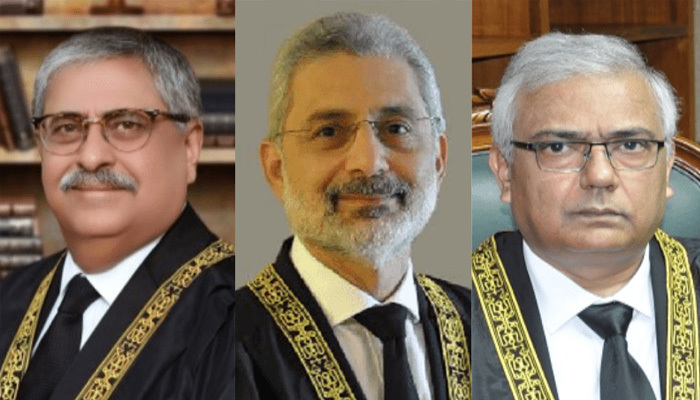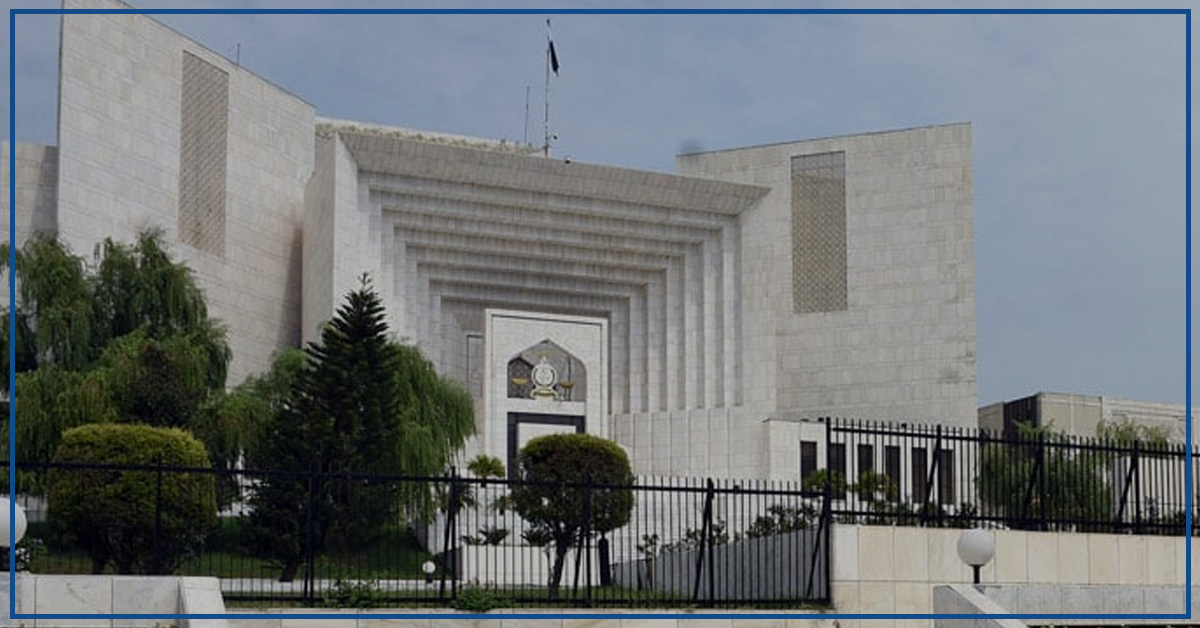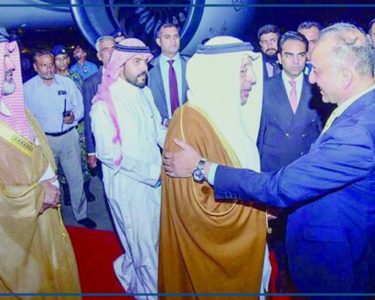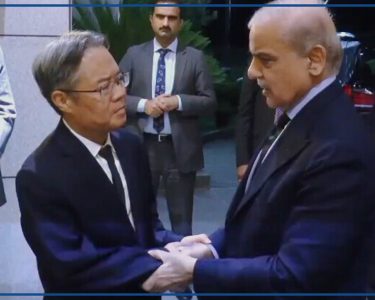In a pivotal development, the Supreme Court of Pakistan is set to resume its hearing of petitions challenging the military trial of civilians involved in the May 9 riots. These riots were sparked by the arrest of Imran Khan, the leader of Pakistan Tehreek-e-Insaf (PTI), in a corruption case.
The apex court, led by Justice Ijaz Ul Ahsan and consisting of Justices Munib Akhtar, Yahya Afridi, Sayyed Mazahar Ali Akbar Naqvi, and Ayesha Malik, is now poised to examine the petitions filed by PTI’s Imran Khan and others.
The federal government recently informed the Supreme Court that military trials for civilians have already commenced. This revelation came in the form of a miscellaneous application submitted following the court’s orders on August 3.
The application highlighted that over 102 individuals had been taken into custody due to their involvement in attacks on military installations and establishments.
In an unexpected twist, nine of the suspects from the May 9 incident, who are currently in military custody, have expressed their “faith and confidence” in military authorities.
They have moved the Supreme Court, urging for their trial in the military court to proceed and conclude expeditiously to “meet the ends of justice.” These nine individuals, out of more than 100 in military custody, filed their petitions through an advocate-on-record.
One of the suspects, in his petition, emphasized that he had not been subjected to torture during his time in military custody and had received better treatment than expected.
He also requested that the military authorities conduct his trial and any related proceedings in accordance with the provisions of the Pakistan Army Act of 1952, ensuring expeditious justice.

The May 9 riots spread across the country following the arrest of former Prime Minister Imran Khan, who was removed from office via a vote of no confidence in April of the previous year.
The unrest resulted in the detention of hundreds of PTI workers and senior leaders for their involvement in violence and attacks on military installations.
During the protests, civil and military installations, including Jinnah House and the General Headquarters (GHQ) in Rawalpindi, were targeted by the rioters. The military referred to May 9 as a “Black Day” and subsequently decided to try the protesters under the Army Act.
The ongoing legal battle began when PTI Chairman Imran Khan, along with former Chief Justice Jawwad S Khawaja, lawyer Aitzaz Ahsan, and five members of civil society, including Pakistan Institute of Labour Education and Research (Piler) Executive Director Karamat Ali, urged the apex court to declare the military trials “unconstitutional.”
Initially, the proceedings faced challenges related to the formation of the bench and recusals by judges. Ultimately, a panel of six judges considered the petitions.
In the last hearing on August 3, the then-Chief Justice Umar Ata Bandial assured that the Supreme Court would prevent the army from taking any unconstitutional actions during the trial of civilians in military courts.
A six-member bench, led by the Chief Justice and including Justices Ijaz Ul Ahsan, Munib Akhtar, Yahya Afridi, Sayyed Mazahar Ali Akbar Naqvi, and Ayesha Malik, presided over the case.
The hearing concluded with an indefinite adjournment, as the Attorney General for Pakistan, Mansoor Usman Awan, assured the Chief Justice that military trials would not proceed without informing the apex court.
Supreme Court’s Resumption of Military Trials Hearing in May 9 Riots Case.





